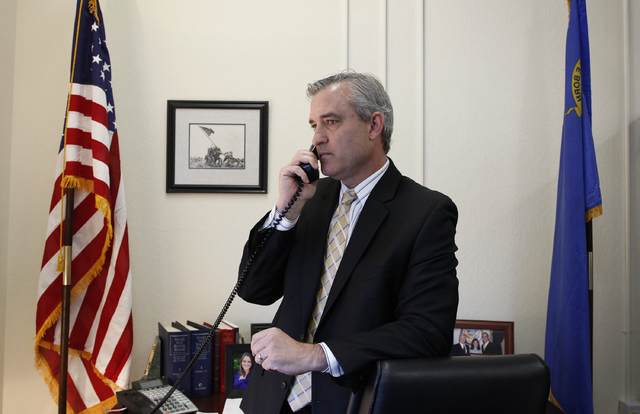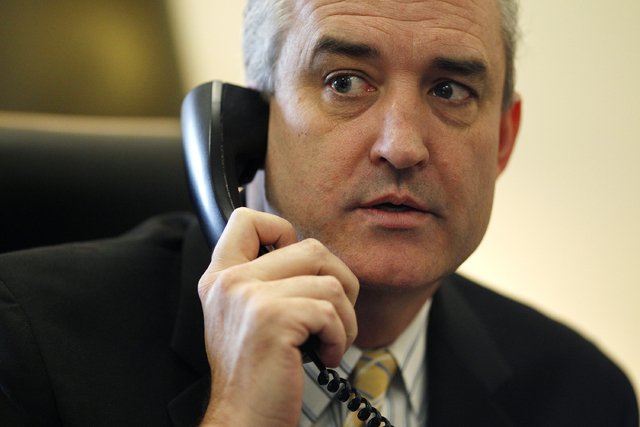Guardianship problems are widely reported but seldom fixed


Abuse by court-approved guardians is hardly new. Nor is it exclusive to Nevada or Clark County.
“This is a growing crisis across the country,” said Washoe County Chief Judge David Hardy, a former family law attorney credited with reforming the guardianship system in that county.
In Nevada and nationwide since the 1980s numerous studies and media investigations have laid bare systemic problems with conservatorships and guardianships.
In 1987, The Associated Press published a series titled Guardians of the Elderly: An Ailing System.
AP reporters from across the United States analyzed 2,200 guardianships from all 50 states, showing that guardianships were too easy to obtain and too hard to reverse. Overburdened and understaffed court systems, meanwhile, rarely have the resources to properly monitor and protect vulnerable wards.
The same findings have been echoed in in-depth reports in recent years by regional newspapers, including the Los Angeles Times, Seattle Times, Columbus Dispatch and the Sarasota (Fla.) Herald-Tribune.
All of the reports, published years apart in different regions of the country, point to the same problems noted by The Associated Press.
But it’s not just the media that has taken notice of this ever-present and ever-growing problem.
In 2010, the Government Accountability Office, which performs research and investigations for Congress, released a damning national analysis of guardianship abuse.
The study included in-depth examinations of 20 cases across 15 states and the District of Columbia, finding that court-appointed guardians had stolen a cumulative $5.4 million from 158 incapacitated wards. The study also noted that courts commonly:
■ Failed to properly screen guardians and appointed guardians who had criminal convictions or significant financial problems.
■ Failed to oversee the guardians after appointment, allowing guardians to abuse wards and take from their estates.
■ Failed to communicate with federal agencies about abusive guardians, enabling them to continue their abuse.
Although the GAO’s 2010 report wouldn’t call the abuse “widespread,” it did identify hundreds of cases of abuse.
Subsequent GAO studies have said guardianship courts need better funding to oversee and protect the growing number of people who are in need of guardianship.
Since the report, guardianship reform has gained traction in some states.
Nationally, Sen. Amy Klobuchar, D-Minn., in late 2011 introduced the Guardian Accountability and Senior Protection Act, which would provide federal grants to help state courts do background checks and improve oversight. The bill has been endorsed by the National Guardianship Association, the Conference of Chief Justices and the Conference of State Court Administrators, but has yet to see a Senate vote.
Contact Colton Lochhead at clochhead@reviewjournal.com or 702-383-4638. Find him on Twitter: @coltonlochhead
Related
Clark County’s private guardians may protect — or just steal and abuse
Escape was only option for an old soldier trapped in guardian system


















